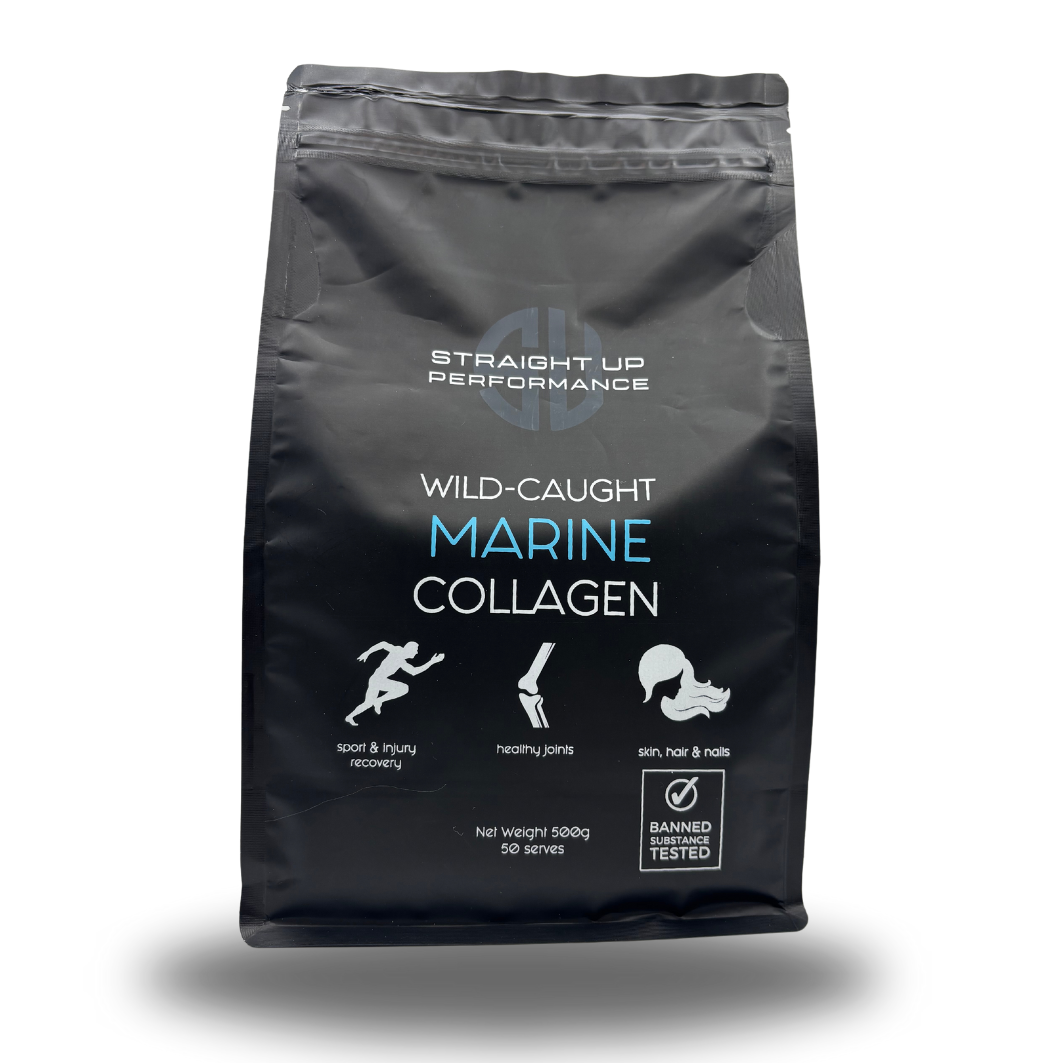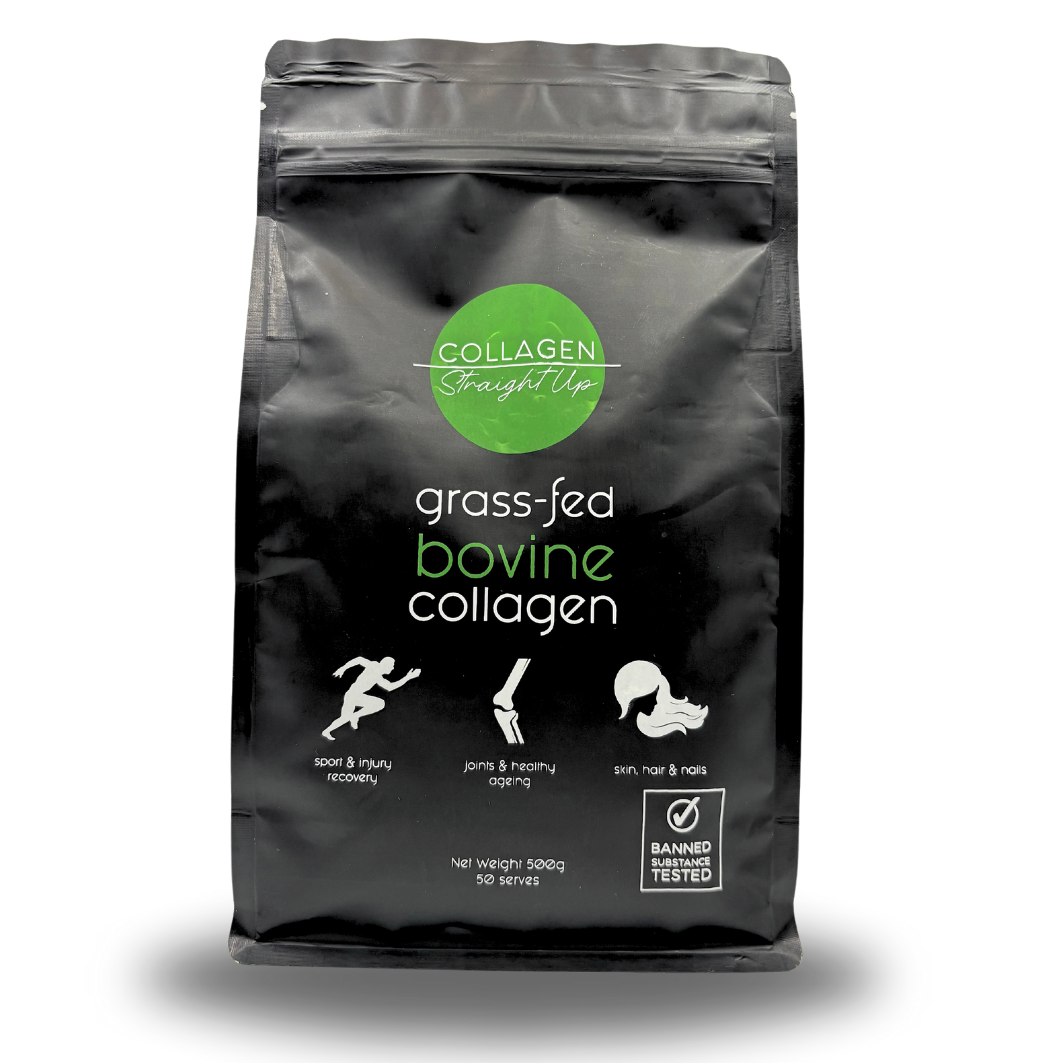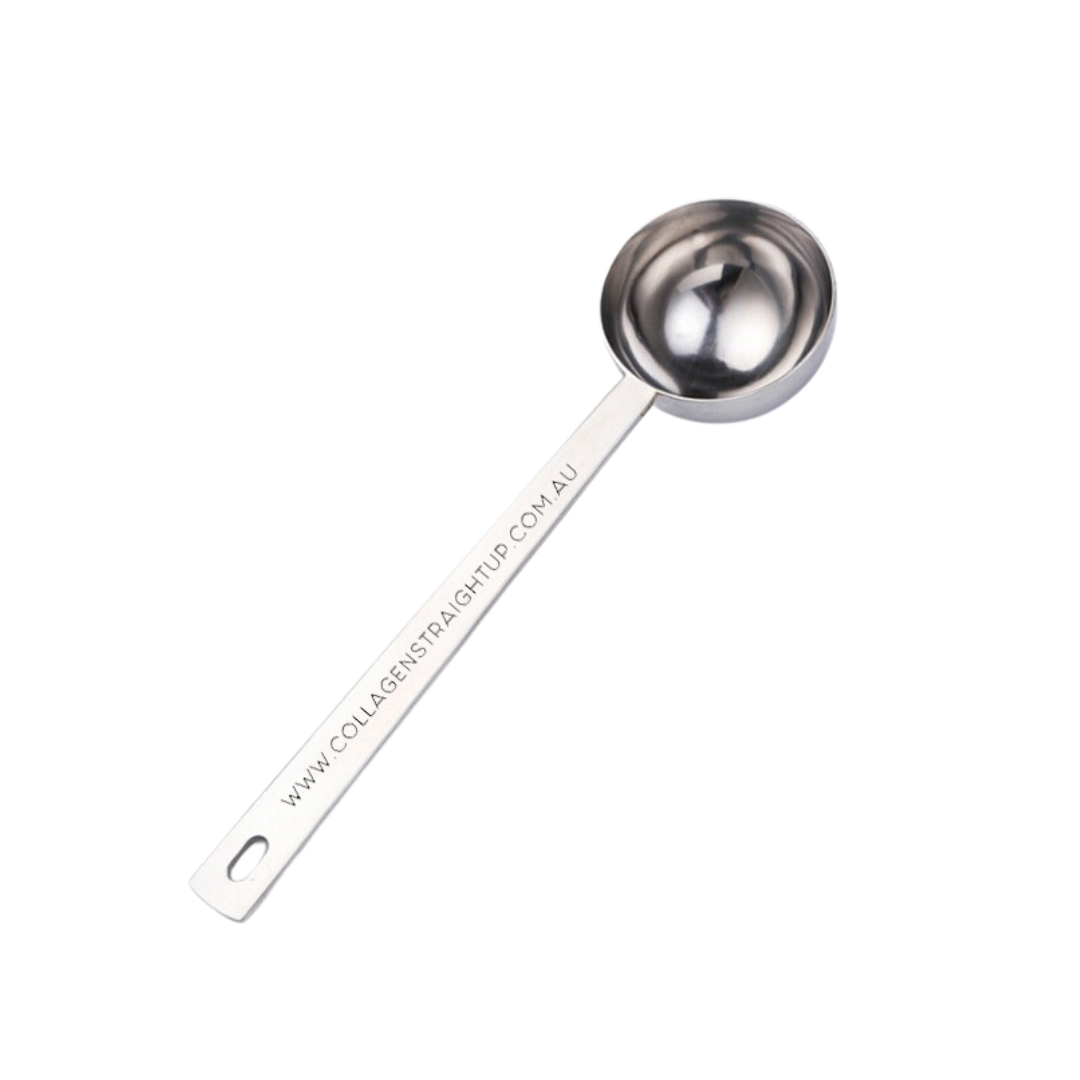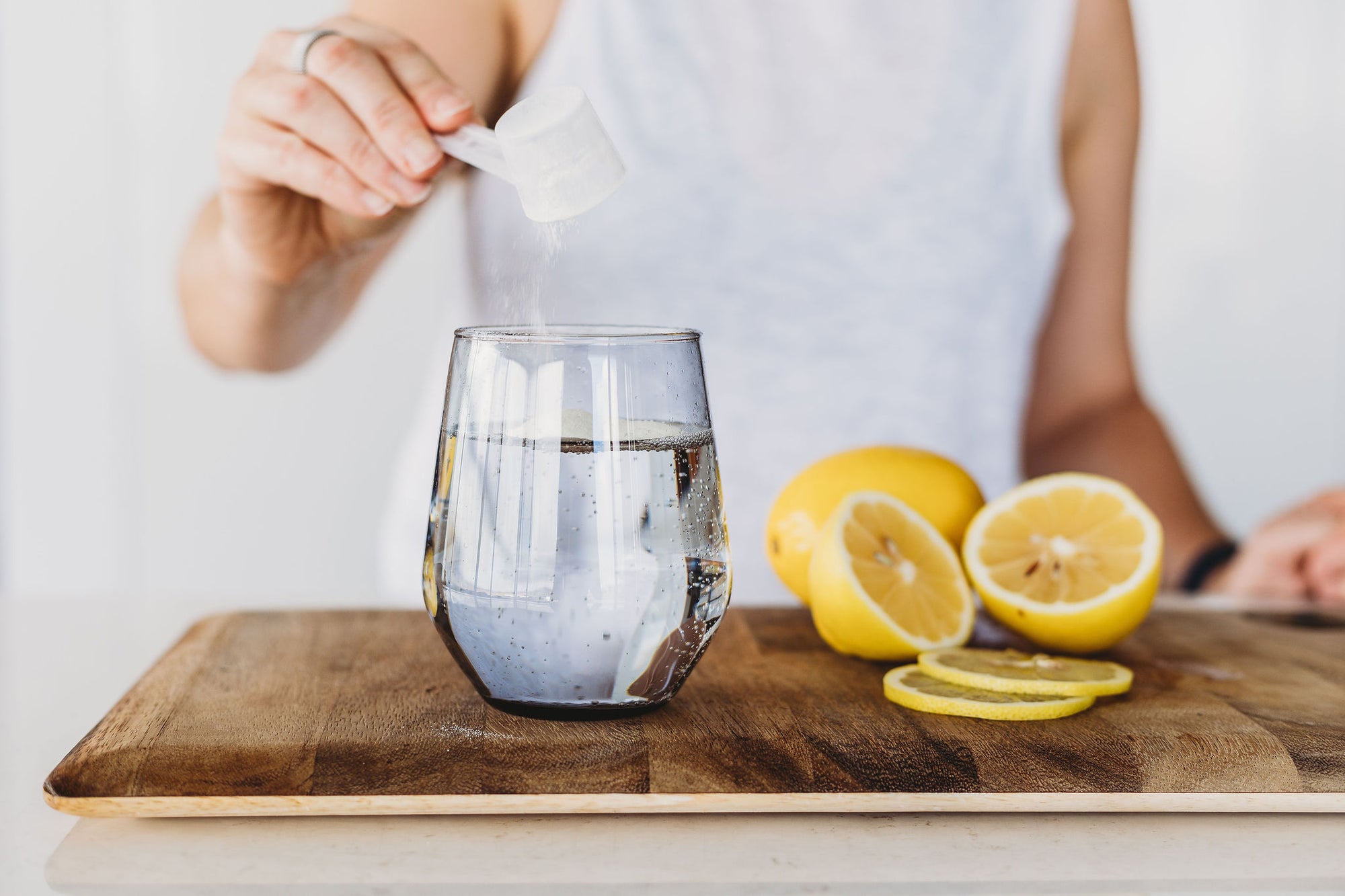

What is collagen?
Collagen is a long chain amino acid and is the most abundant protein in the human body. Collagen is responsible for the structure, function and mechanical properties of our skin, cartilage and bones.
The natural course of aging results in a slowing down of collagen production, and increased breakdown. This can begin from the age of 25 and leads to the inevitably noticeable signs of aging in our skin, as well as longer recovery times after injury, weaker bones, decreased muscle strength, and greater wear and tear on our joints.
There are three main types of collagen:
- Type I - accounting for 90% of the body's collagen. Type I collagen is found throughout the body and in our arteries and corneas.
- Type II - makes up approximately 50% of the body's cartilage.
- Type III - found in our skin, arteries and other organs.
-
20% less muscle soreness after training
-
Reduced joint pain by 32% & increased mobility by up to 44%
-
Reduces fine lines and increases skin hydration by up to 30%
-
Faster Injury Recovery
How do collagen peptides work?
Firstly, collagen is a large molecule made from long chains of amino acids that are then wrapped around each other in what we call a triple helix. It is not at all soluble.
Gelatin is a form of hydrolysed collagen. That is, the helix has been pulled apart into individual chains so that it will dissolve.
Hydrolysing gelatin a step further breaks down the long chains into small peptides which are not only soluble but are also easily digested and absorbed. Over 90% of the collagen peptides we eat appear in our bloodstream within a few hours, and are effectively delivered to their site of action in our body.
Collagen peptides are modified while they pass through the digestive tract. In particular, the collagen-specific amino acid hydroxyproline which forms hydrolysis-resistant peptide bonds that are absorbed through your intestinal wall and into your bloodstream, where they exert a messenger function directly on the target cell,such as triggering synthesis and reorganization of new collagen fibres in skin.
Collagen is the primary component of many of your body tissues...
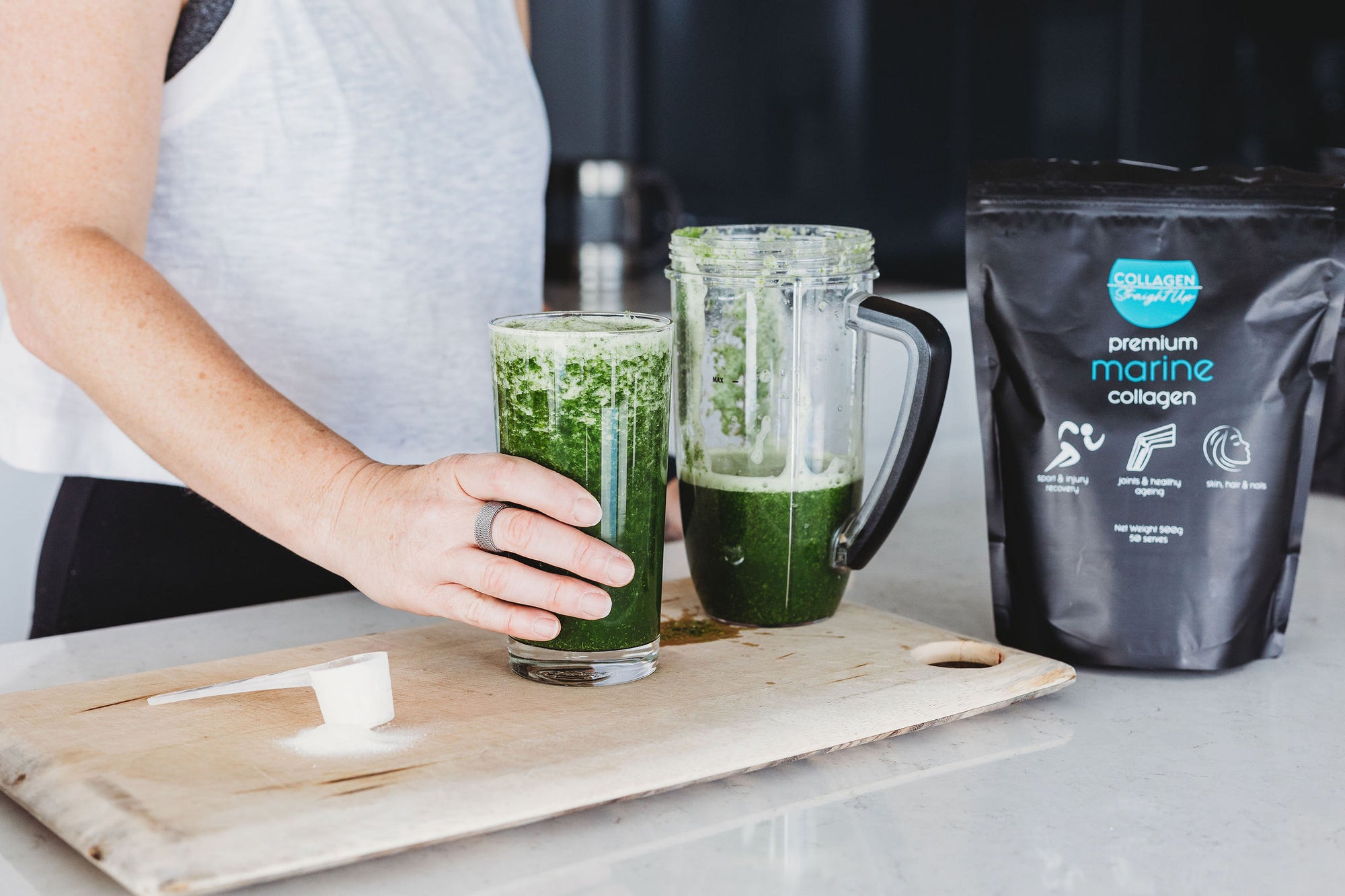

Collagen peptides are easily digested and absorbed in our body
Hydrolysed collagen is collagen fibres that have been broken down into their smallest form so that they are highly soluble, easily digested and readily absorbed by our body.
Marine collagen is more bioavailable and can be absorbed up to 1.5 times more efficiently than bovine collagen. It is also a great vegetarian collagen source.

